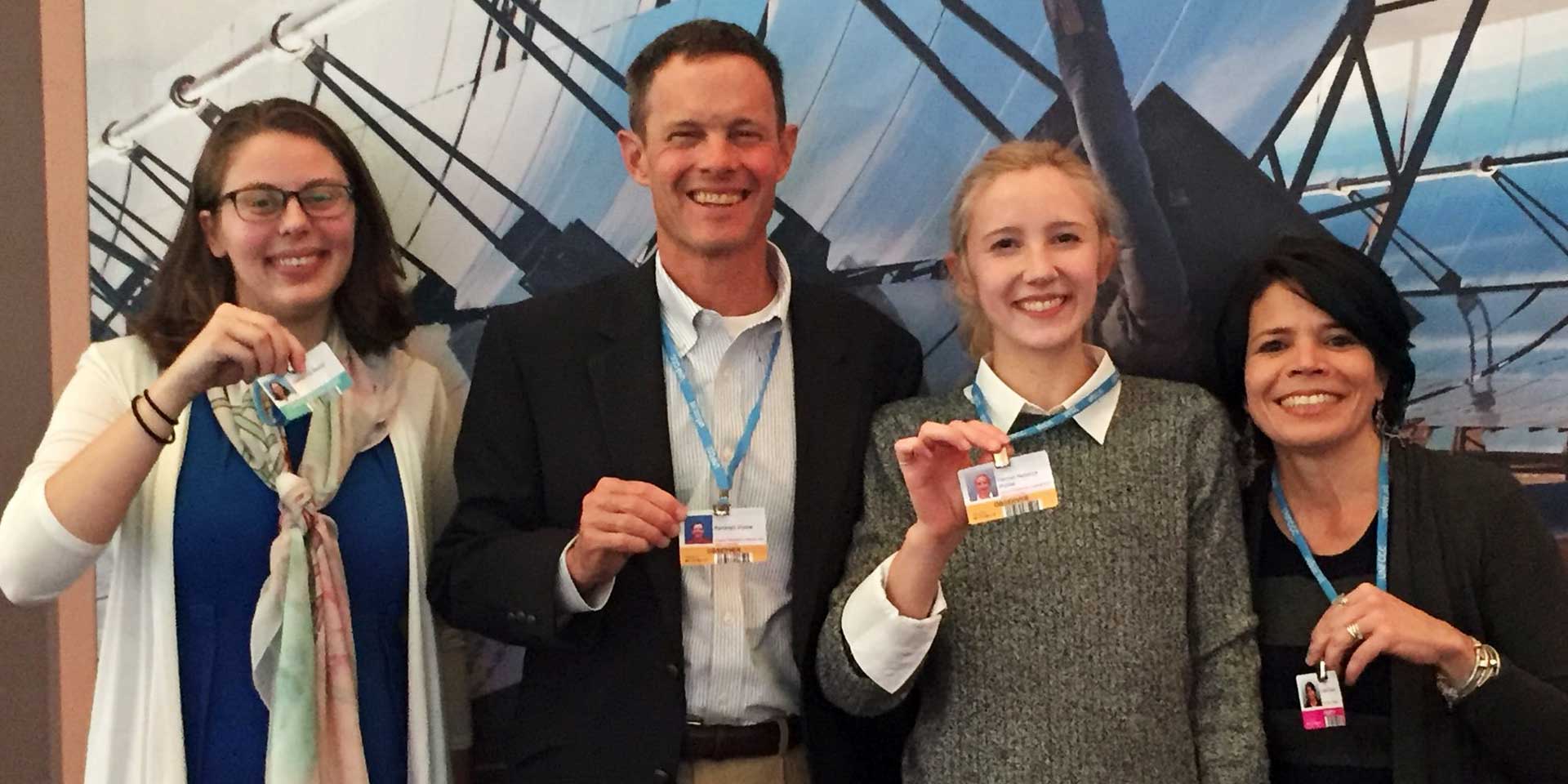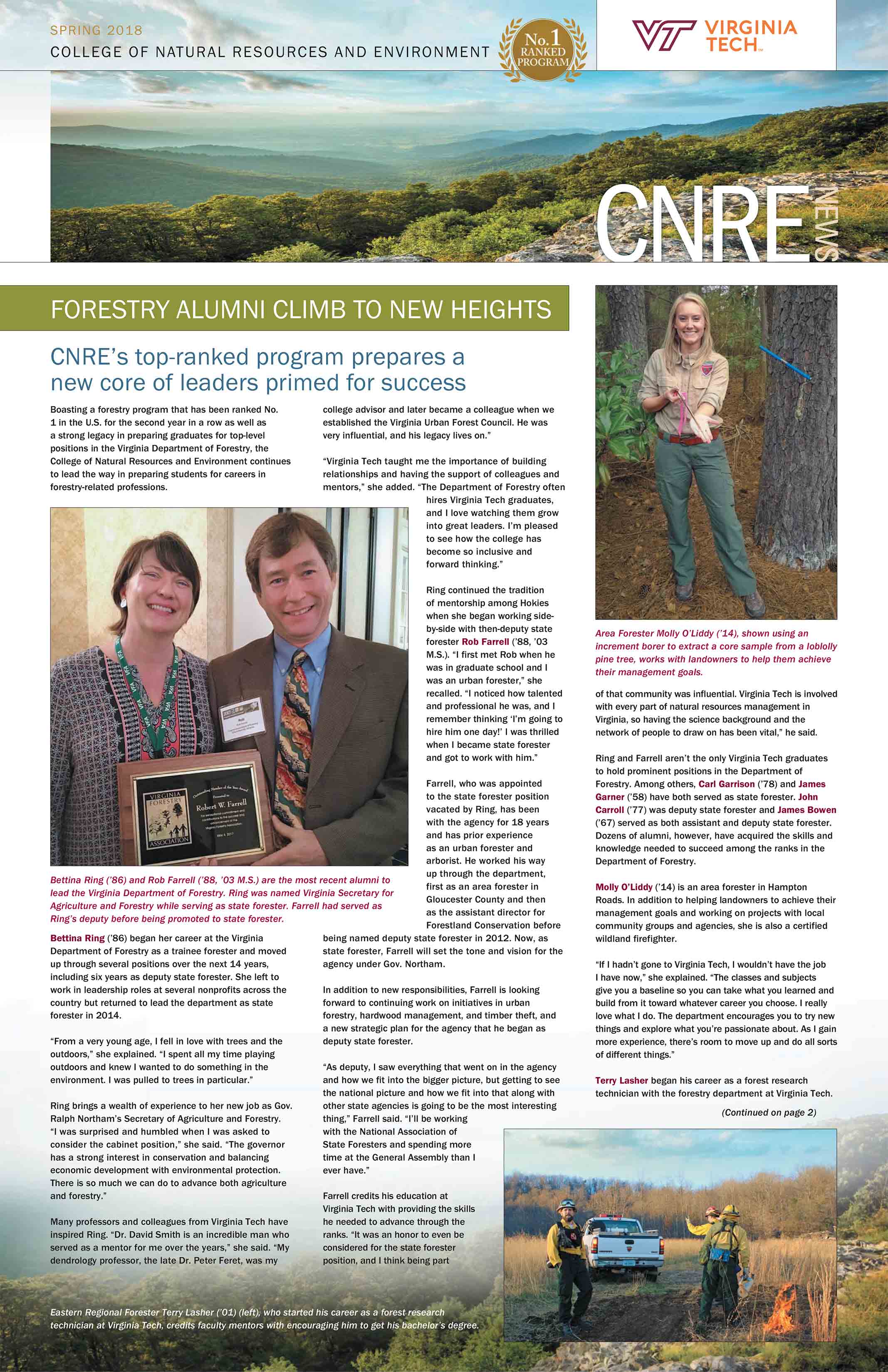Students gain global perspective at U.N. Climate Change Conference
May 15, 2018
Virginia Tech’s delegation included (left to right) Katherine Bland, Professor Randolph Wynne, Hannah Wynne, and Senior Research Associate Carol Franco.

Virginia Tech sent its first-ever delegation to the 2017 U.N. Climate Change Conference (UNFCCC), where representatives from governments around the world converged to discuss climate change and its many facets. Virginia Tech was granted the status of an Observer Organization, which is reserved for universities and nongovernmental organizations.
The delegation was led by Carol Franco, a senior research associate in the Department of Forest Resources and Environmental Conservation, who has participated in the UNFCCC as a delegate from the Dominican Republic since 2012. Two students from Franco’s Climate Change and International Policy Framework course also attended, enhancing their coursework about the science, causes, impacts, policies, and mitigation of climate change.
“Virginia Tech is able to take students and expose them to high-level global climate change policymaking. There they can present their research, network, and access potential future work opportunities,” said Franco, who spearheaded efforts within the college to gain Virginia Tech’s Observer Organization status.
Biological systems engineering master’s student Katherine Bland, one of the two student delegates, considers the experience to be essential to anyone who is interested in influencing policy. “The immense sense of purpose blanketed with necessity is electrifying. I was able to learn more about climate policy, and international policy in general, by living in it for a week than I think I would ever be able to learn from lectures,” she said.
Professor Randolph Wynne, a member of the delegation, said, “Our participation enables engagement by students and faculty members at the technical, cultural, and political nexus of climate change adaptation and mitigation. As a scientist primarily engaged in the technical details of environmental monitoring, I had the unique experience of attending the UNFCCC with my daughter, Hannah, an international studies major in the world politics and policy option.”



